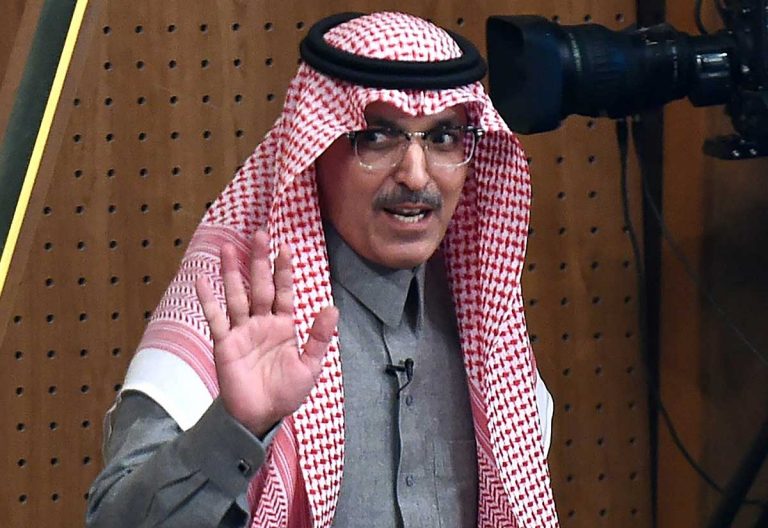Saudi Arabia intends to issue around SAR 120 billion ($32 billion) of bonds next year to help finance its deficit, with plans to tap international markets in the first half, Finance Minister Mohammed Al-Jadaan said.
The kingdom is considering international bonds in dollars and other currencies, Al-Jadaan told Bloomberg TV in Riyadh on Wednesday. The exact timing of the issuances will depend on market conditions. The minister didn’t break down the total into local and international debt.
“We now have access to a wider network of investors in the U.S., which is the primary market, but also in Europe and Asia,” Al-Jadaan said. “So we are expanding and we are likely to go to the international markets early next year.”
The world’s largest crude exporter on Tuesday released its budget for 2019, with expectations for a deficit of SAR 131 billion, or 4.2 percent of gross domestic product. Saudi Arabia issued international bonds for the first time in 2016 as part of Crown Prince Mohammed bin Salman’s economic overhaul to prepare the kingdom for life after oil.
Investor Appetite
Al-Jadaan said the murder of Washington Post columnist Jamal Khashoggi by Saudi agents at the kingdom’s consulate in Istanbul in October, which sparked a global outcry, hasn’t affected foreign investment. Top corporate executives pulled out of a key business conference following the killing, and some have said they’re reconsidering their plans.
“I haven’t seen foreign investment or local investment changing, to the contrary,” he said, adding that the kingdom’s inclusion in MSCI’s emerging markets index next year will help it attract passive flows from institutions.
The budget included a 7 percent boost to spending and extended extra benefit payments for government employees worth billions of dollars for another year. It projected revenues of SAR 975 billion next year, with SAR 662 billion coming from oil.
The revenue forecast surprised some analysts who said it was based on a relatively high price of oil at a time when crude prices are falling.
Domestic Energy
The projection defies “the laws of arithmetic,” said Ziad Daoud, the Dubai-based chief Middle East economist at Bloomberg Economics, who estimates the government’s calculations may be based on a crude price as high as $80 a barrel. The global Brent benchmark traded below $57 on Wednesday.
Al-Jadaan said Saudi Arabia can’t disclose its oil price assumption, but said that he believes “the numbers that we have in the budget are reasonable.”
The minister said energy prices other than for quarterly-reviewed gasoline are unlikely to change in 2019. Increases in the last two years had a greater than expected impact on consumption, he said. Lowering energy subsidies is a key part of the crown prince’s reform plan.







